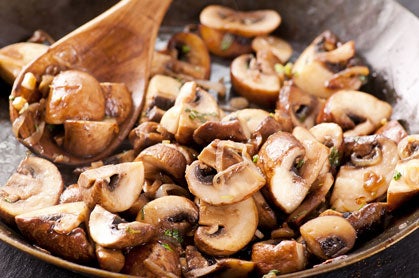Is Eating Raw Mushrooms a Bad Idea?

Ask the Dietitian: Exploring the link between mushrooms and carcinogens
Photo by Big Stock Photo.
In the recent Trail Runner article titled “Stealth Health Foods'”[Nutrition, Issue 89, July 2013], white-button mushrooms are recommended. Don’t these mushrooms, along with portobello and cremini, contain natural carcinogens, and shouldn’t they be cooked thoroughly to break down the toxins and not be eaten raw?
—Troy Denton, Atlanta, Georgia
White-button, portobello and cremini mushrooms are all members of the species Agaricus bisporus. These mushrooms are shown to have a slew of health benefits such as boosting immunity, reducing inflammation and playing an active role in breast-cancer treatment. However, agaritine, a natural compound found in the Agaricus genus, has been identified as a carcinogen.
To date, only animal studies using rodent models have showed carcinogenic effects of agaritine when using high concentrations of the toxin. It would be very difficult for humans to consume enough mushrooms to be exposed to the same amount of toxin that produced negative results. While data using reasonable doses of mushrooms for short periods of time does not prove agaritine to be harmful, it still might be possible that agaritine-containing mushrooms have long-term toxic effects. More studies need to be conducted looking at long-term consumption at functionally relevant doses.
Instead of eliminating these meaty morsels from your diet, cooking your mushrooms instead of eating them raw can help you reap their positive properties. According to a study published in the journal Food Additives and Contaminants, cooking mushrooms by boiling, frying or microwaving reduces the amount of agaritine between 35 and 70 percent.
Editor’s Note: This is an installment in our online Ask the Dietitian column with Maria Dalzot, MS, RD, CDN and an avid trail runner. You can visit her blog at www.mariadalzotrd.com or submit your nutrition questions to nutrition@trailrunnermag.com.